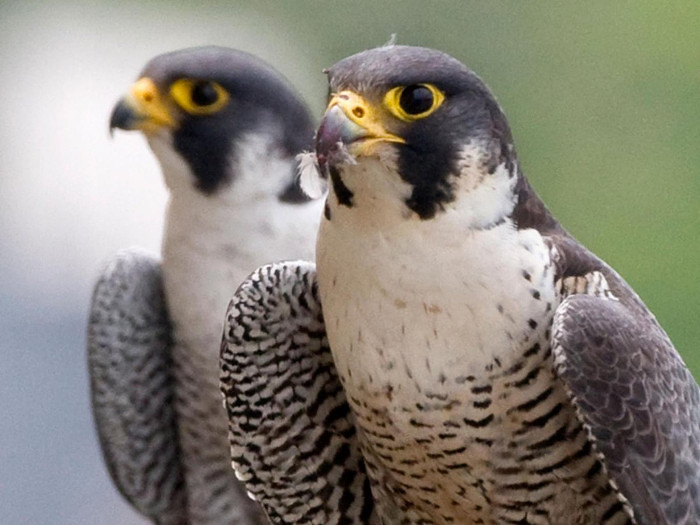Peregrine Falcon: The bird that stuns with its flight speed and is the most loyal to its mate
Being monogamous on a lonely mountain crag may be easy, but birds of prey stay true even after moving to Chicago.
A new study suggests that peregrine falcons could be champions of true love.
Sex in the animal kingdom often seems to lack any sign of romance whatsoever. In fact, it can be really quite hasty: just ask a female mallard duck or a male redback spider.

However, a new study suggests that peregrine falcons could be champions of true love, with a far greater sense of “to love and to cherish, till death us do part” than most humans.
Peregrines are known to mate for life when they are in their natural habitat on isolated cliffs, far away from other pairs – and temptation.
But, quite reasonably, researchers hypothesized that the birds of prey would be more promiscuous when nesting among the 50 or so birds who live on the skyscrapers and bridges of Chicago.
After carrying out DNA tests on the birds and their eggs, they found just one brood out of 35 in which the chicks were fathered

ferent bird.
But they believe that this happened because a female peregrine was widowed and found a new mate who then helped her raise her former partner’s chicks.
John Bates, associate curator of birds at The Field Museum of Natural History in Chicago, who took part in the research, said: “Peregrine falcons that now live in the Chicago region are living in very different conditions than you’d normally see for these birds, so we wondered if the falcons’ mating habits had changed too.
“They’re in much closer proximity to each other than they’d be in a more rural environment, and we thought they might be more promiscuous with more potential mates nearby.
“Each spring this population also has migratory peregrines passing through on their way to all parts of Canada, so we didn’t know what we were going to find.
“But it turns out that almost all of the mated pairs in the city remain monogamous through the years.”
Peregrines, which can reach speeds of 110mph as they swoop down on their prey, came close to extinction in the US in the 1960s as the now-banned pesticide DDT caused the shells of their eggs to thin.
But they have since made a comeback, particularly in Chicago where 90 percent of the breeding pairs in the Midwest nest on buildings and bridges in the city.
That prompted the researchers to look into whether “sex in the city” was different from the habits of the birds’ country cousins.
“Whenever you have animals living in habitats that have been influenced by human development, you have to wonder how the animals’ life histories will be altered,” Dr. Bates said.
